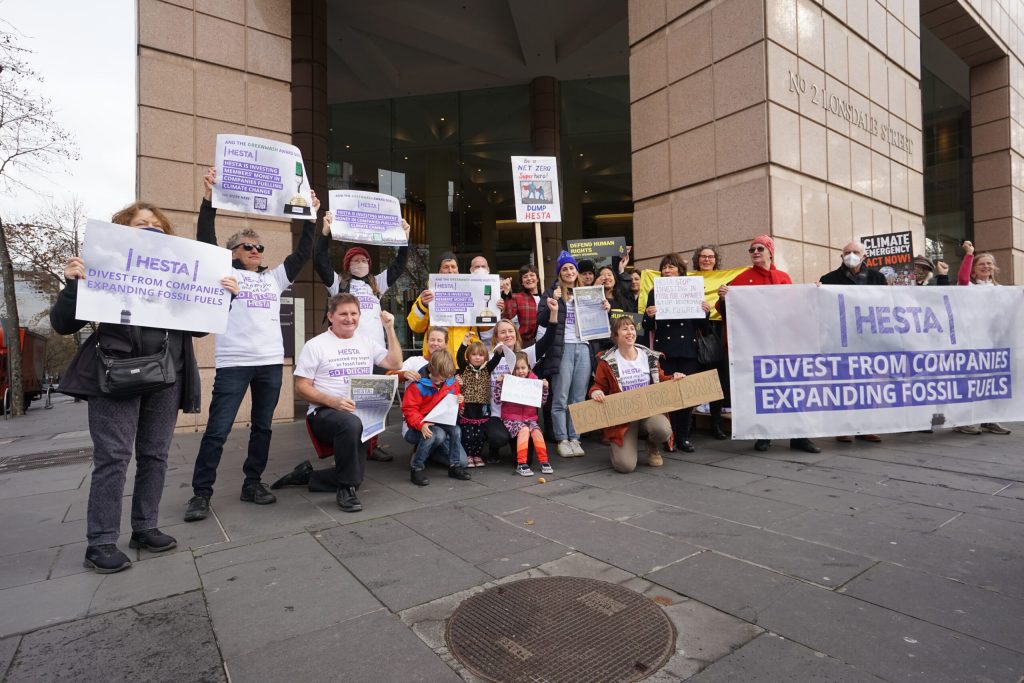HESTAs move to propose its own choices for Woodside Energys directors represents a significant shift, as it faces growing criticism from environmental groups and activist investors over its climate and investment plans.
HESTAs stake in Woodside is under 1% but its urging the company to strengthen its climate action plan, and warning of potential divestment if emissions reduction strategy isnt improved. The fund believes Woodside needs to prioritize adding new energy and business transformation specialists to its board.The fund stated its belief that strong governance, culture, and capabilities are necessary for Woodside to thrive during the energy transition and be prepared for a low-carbon future.HESTAs statement says: We believe ongoing strong governance, culture and capabilities are required for the company to thrive through the energy transition and be well-placed for a low-carbon future.
Woodside, under fire for planning new projects while aiming for a 15% emissions reduction by 2025, has acknowledged investor concerns. The company's CEO, Meg O'Neill, is actively engaging with investors and undergoing a board renewal process. However, previous appointments have been criticized for not showing strong commitment to decarbonization. Woodside chairman Richard Goyder stated the company has been extensively engaged and listened carefully to feedback from shareholders on climate action plans and the role of gas in a lower carbon world.
HESTAs action is viewed as a potential turning point for super fund influence on board composition in Australia, with some welcoming the long-term perspective super funds bring, while others raise concerns about potential conflicts of interest and their impact on boardroom dynamics. Mr. Goyder said Woodside had been working hard to ensure the board has the capabilities to support the challenges, opportunities, and culture it faces and wants to build.The success of HESTAs nominees remains to be seen, but their push for climate-focused leadership at Woodside indicates a growing demand for accountability on climate action in the energy sector. This could prompt other energy companies to re-evaluate their boards and strategies in response to increasing pressure to transition to a more sustainable future.“
The success of HESTAs nominees remains to be seen. However, their push for climate-focused leadership at Woodside signifies a growing demand for accountability on climate action within the energy sector. This could have far-reaching implications, prompting other energy companies to re-evaluate their boards and strategies in light of increasing pressure to transition towards a more sustainable future.
Beyond HESTA: A Growing Movement
HESTA's action is part of a larger trend of super funds using their influence to address environmental issues. With trillions of dollars in assets under management, super funds have a significant financial interest in the success of the companies they invest in, leading them to pressure companies to improve their sustainability practices through environmental, social, and governance (ESG) factors.
HESTAs actions and the Future of Woodside
Pressures from HESTA and other investors are expected to continue mounting on Woodside. With Woodside's current climate targets being labeled as meaningless and lacking credibility by environmental groups, the company faces the risk of losing investor confidence and hindering its ability to attract capital for future projects.
“We have talked a lot and carefully considered the feedback from our shareholders, who want more detailed information about our plans to address climate change and the role of gas in a world with less carbon.” Woodside CEO Meg O’Neill said at an investor briefing. “We’ve spent a lot of time since that last climate vote meeting with investors really listening to understand what was it about our last report that left them unsatisfied,” she added.
This pressure could force Woodside to speed up its transition plans. The company may need to think about setting more ambitious goals for reducing emissions, investing more in renewable energy sources, and maybe even selling some of its current fossil fuel assets.
The outcome of this clash between HESTA and Woodside will be closely watched by the energy sector and beyond. It could set a precedent for how super funds and investors can influence companies on climate action, shaping the future of the energy industry.



